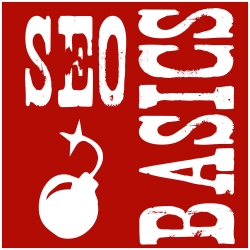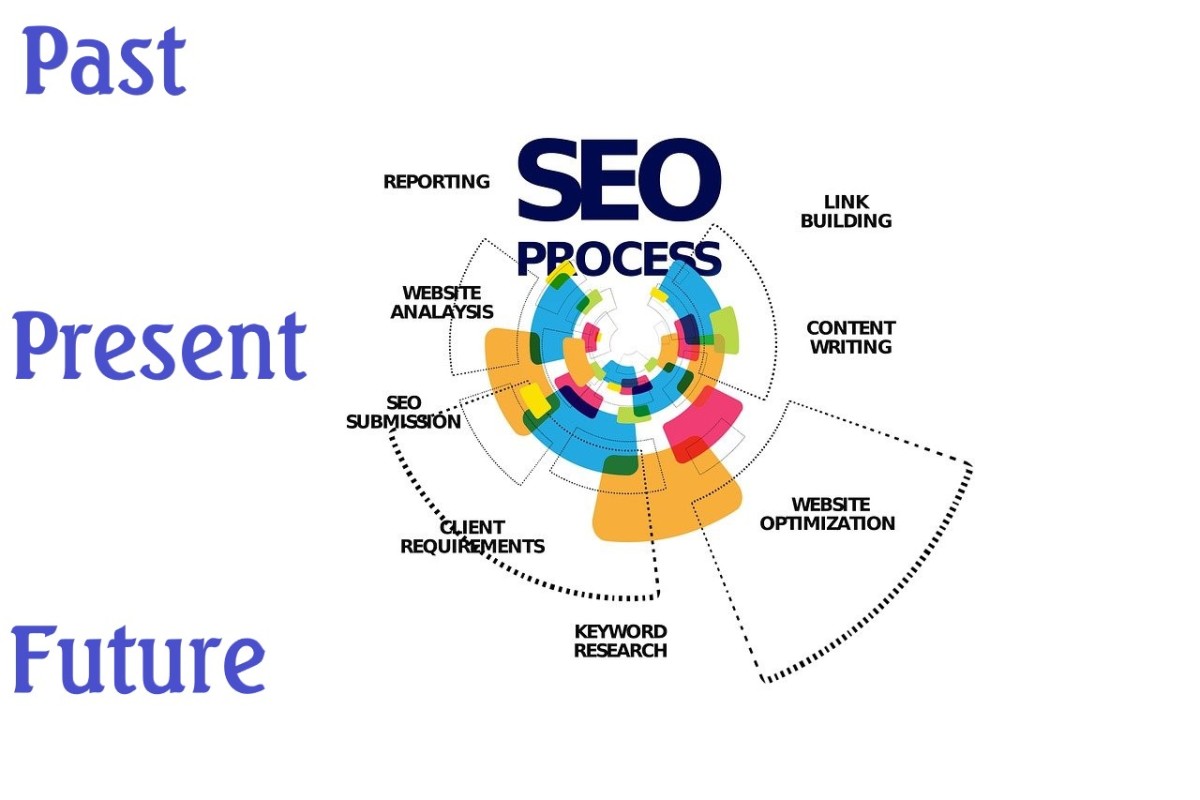Google Search Engine Optimization Tips

Google SEO: How to Get Your Website Noticed by Google Through Search Engine Optimization
Have you ever heard that famous movie line "build it... and they will come?" That's not always the case. Actually, it hardly ever is the case in terms of websites. Promotion, marketing, and search engine optimization are all large contributors to your online success. If you're looking for a ways on how to get noticed by Google, this guide will serve as a great introduction for you in terms of building backlinks, optimizing your website for search engines, and making small changes going forward that search engines, specifically Google, will like.

An Overview of Search Engine Optimization
A general explanation of Google SEO
Search engine optimization sounds scary. SEO sounds like a lot of work, and it sounds technical. If you guessed either of these, you would be right. Optimizing your website for Google isn't easy. There's no magic quick-fix that will get your website at the top of the search. Basically what search engine optimization is, is this:
1. Creating unique content not found elsewhere on the web.
2. Focusing on certain keywords to rank for on each particular web page of your website.
3. Gaining backlinks to your website
There are other factors, too, like the age of your domain, the anchor text used when linking, the URL of the website, the number of websites that link to website, and even the filenames and alt tags of images. When you add up all of these factors, plus many other unknown factors, you'll get Google's algorithm that ranks your website. This algorithm determines whether you wind up on page 1, third result down, or page 37 for a particular keyword.
Being Realistic With Your Search Engine Optimization Expectations
Set realistic SEO goals and obtain real results for your site
Let's be honest for a moment. Are you ready to dive in with both feet and make a commitment to Google SEO? A really long commitment? You see, the thing about search engine optimization is that the work truly never ends. Once you get to the top, nothing guarantees that you will stay there. Chances are you will stay near the top of the search, but niches become saturated quickly, and new competition is climbing up the SEO ladder everyday. The day you stop with your SEO efforts is the day the competition gains the advantage over your website.
Maybe you should ask yourself what you'd really like to accomplish. Getting to the top of the search for the word "football" isn't going to happen. You would have a better chance at getting a little traffic for "football players," and an even better chance at ranking high for "the nfl's best football players of 2010." Being realistic with your SEO goals can prevent a letdown later on, and can prepare you for the amount of work you'll be in for. With a big SEO plan for a small website, expect to spend a few hours a week minimum to accomplish your goals. Here's where you'll be spending your time:
* Creating new content optimized for Google
* Creating unique content elsewhere that links to your own content
* Trying to gain backlinks to your website
* Editing existing content, revising, and adding keywords
* Doing keyword research
Why Your Website Topic Matters with SEO
How your niche topic can be affected by Google
With SEO, your topic does matter. In certain genres, the Google results will unveil a giant amount of competition. In any niche, there's always room for one more, but it just might be more work. This is worth considering when starting up a new niche oriented website. The more Google results that you see, the harder you job is going to be, and the deeper into your niche you will have to dig. In these circumstances, you'll have to use a combination of outstanding search engine optimization, combined with writing that's well above the rest, flows perfectly, has excellent copywriting, and trickles into the cracks - topics that everyone else thought weren't worth writing about.

Linking Your Content Together
How to optimize your links so your pages will perform their best in Google
One common mistake you might see across the web is lack of internal linking. Linking to your own relevant pages within the same website will increase your traffic, and tell the search engines what that page that you are linking to is about. If I had a website about curtains, with a page about "purple curtains," I would want to link somewhere within the content to any relevant pages within the website from the "purple curtains" page. If I had a page about "purple curtain rods," I would want to link that page using the anchor text "purple curtain rods," and what better place to link to that page than the page about "purple curtains." Linking to the page using the URL is a mistake - linking using keywords is a better idea.
A wide variety of links from different domains will almost always help you with your search engine placement. This is one of the toughest aspects of most search engine optimization plans. Getting links from external websites is something that occurs naturally when people find useful content that applies to their website, or when site owners request or swap links. Here are some things you should know about external linking:
* The PageRank of the website matters that links to you. The higher the PageRank, the more search engine benefits for you.
* Reciprocal linking, when two websites exchange links, are not as valuable as one-way links. However, they are still valuable.
* The website that links to you shouldn't be a spam website. Only try to get relevant, authoritative website to link to you.
* Avoid paid links and link farms. Google can sometimes detect patterns when people are buying links and penalize the sites that buy links.
* Writing articles that link to your website can help direct traffic and pass PageRank. You can find a list of websites that allow you to create content for free here.
A Small Business Owner's Guide to SEO - Put SEO in its business place with this recommended guide
SEO is a huge part of online business. Can you carve out a piece of the market by getting your share of the search engine pie? Small businesses can succeed in the vast market of online retail, with some proven, tried and true SEO practices. Yes, you can even be more relevant in the search, in some instances, than the big boys like Amazon and Overstock. It just depends on how much search engine optimization you utilize, and how well you can do it.


Interesting Writing Always Beats SEO
Why search engine optimization will never win over great content
If you hate SEO, you don't have to focus on it entirely. In fact, plenty of websites have horrible search engine optimization, but have such interesting content that the word has spread, the traffic has come, people have linked, and Google has noticed. So if you're the best at what you do, don't worry too much about SEO. If you're great at what you do, but have a lot of competition, then worry about SEO -- but don't get too caught up in it. Someday, maybe SEO won't even matter, and the quality of the content will matter more. The point is, always focus on the quality of your content first, then SEO. People won't take notice of a well optimized website, but they'll always notice a helpful, unique, fun, and interesting website. Writing great content always wins.
Don't Turn Into an SEO Robot!
Search engine "robots" might crawl your site, but just because you are trying to optimize your website for Google doesn't mean you have to write like a robot. Let your writing flow naturally, keeping SEO in the back of your brain while writing. If SEO is ruinign your writing, then go back and insert keywords and keyword phrases where they naturally fit in. Your readers will appreciate it.
11 More Things You Can Do to Get Noticed by Google
Things you can do right now to gain a foothold in the Google search results
Google isn't going to notice you and give you automatic top billing just because you want it. It's a long way to the top if you want to rock n' roll (with Google). If you're ready to start So, here are ten things you can do to help get noticed by Google.
1. Make the URL of your web pages search engine friendly. That means use dashes between your words in the URL. Example: http://www.squidoo.com/search-engine-friendly-page
2. Link to the exact same domain every time. Don't link to www.abc.com, link to http://www.abc.com. Be consistent in your linking, as Google treats these as two different domains.
3. Avoid getting sandboxed by Google by building links up slowly. Too many links too fast can result in penalization of your website, and worse yet, it can disappear forever.
4. Use social networking to promote your website. Social networking sites like Facebook and Twitter are now being counted as links in some manner, if they point towards your website. This doesn't mean that you should spam your profile or fan page with links, but an every now and then link wouldn't hurt.
5. Use RSS feeds to get deep links. If you have a blog, generate an RSS feed and see if you can get some quality backlinks through these RSS feed submissions.
6. Concentrate on targeted web traffic as opposed to general web traffic. This will engage readers further, and they'll spend longer on your page. This could lead to more links, sales, and even more traffic.
7. Create a site map and submit it to Google. This will tell Google about every web page that your site has to offer, but won't guarantee they will all be indexed.
8. Try to attract traffic through images. Google's image search is a top source of traffic for many webmasters. Optimizing your site images can help Google tell what your images are, and you might get some additional traffic and links in the process.
9. Submit your website to web directories. Submitting your website to high quality directories are sometimes not free, but can help with search engine rankings. Your link will be placed into the category that it is most relevant, or you will find the category that is most suiting for your site.
10. Research keywords. Keyword research can help you rank better in Google through some simple, free tools available. The Adwords Keyword Tool is one way to get a list of keyword phrases to include in your website.
11. Think outside the box of your website and start to promote via articles. Only high quality articles are going to attract the attention of readers and pass on Google juice, so don't waste your time publishing half-baked pan scrapings. Zujava, EzineArticles, Squidoo, and Hubpages are good choices, and will allow external links to your site.








